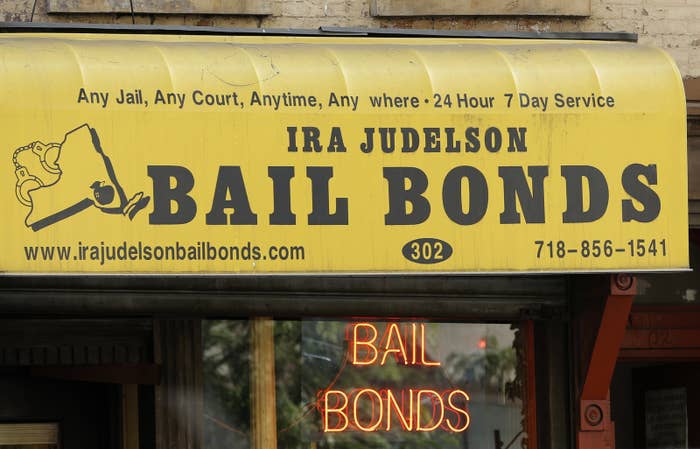
California became the first state to end its cash bail system on Tuesday with a law that some criminal justice activists fear may do more harm than good.
The California Money Bail Reform Act, which will end the practice of releasing suspects from jail as they await trial if they put up money as a surety they'll return for their court dates, was signed by Gov. Jerry Brown and takes effect in October 2019. Under the new law, people awaiting trial will be jailed only if they are considered a risk to public safety or likely to miss their future court dates.
"Today, California reforms its bail system so that rich and poor alike are treated fairly," Brown said in a statement.
Abolishing cash bail is a revolutionary change to the criminal justice system, and an issue activists have worked on for years. Supporters of the change say cash bail keeps too many poor people behind bars who pose no risk to the public, and that the bail industry engages in predatory lending, particularly toward poor communities of color.
Lawmakers worked on the bill's final language for two years, but in its final form, some fear it will lead to more people behind bars than the old cash bail system.
"This bill unfortunately replaces that flawed system with one that could increase pretrial detention and increase racial disparity," Jess Farris, criminal justice project director for the ACLU of Southern California, told BuzzFeed News.
The ACLU pulled its support from the law because of its reliance on risk assessments without ensuring transparency and other protections against racial bias. Farris added that risk assessments should be conducted by an independent agency, rather than probation officials, and the law should have put a preference on releasing people rather than jailing them.
"In our system, liberty should be the norm before you're convicted of a crime," she said.
The ACLU will continue to seek those changes before the law goes into effect, as well as advocating for government funding of programs that are likely to have a positive impact on court attendance: providing bus fare, for example, or sending out phone reminders.
The law faced heated opposition from the bail industry, Farris added, and its supporters likely saw the final version as a compromise toward securing a significant step forward for California's criminal justice system.
But she added, the ACLU — and people of color — don't have cause to celebrate just yet.
"It really is incredibly concerning that more people are going to be trapped in jail," she said. "Racial justice is not negotiable. It shouldn't have been on the bargaining table."

Essie Justice Group, a nonprofit group of women with incarcerated partners or family members, also said they initially had high hopes for the California law.
"As women with incarcerated loved ones, we are the ones who’ve emptied our savings, put up homes for collateral, and gone into debt to pay bail industry fees," the group said.
But they too pulled their support from the bill, saying it will inevitably lead to more innocent people in jail and criticizing its dependence on risk assessments.
"Risk assessment tools are prone to racial, gender, and socio-economic bias, because they rely on criminal justice data," the group said. "Since the criminal justice system operates in discriminatory ways — disproportionately harming communities of color, women, and low-income people — these algorithmic assessments can be dangerous."
But supporters of the law said they believed it was a major step toward making California's justice system fairer.
"Abolishing money bail and replacing it with a risk-based system will enhance justice and safety," Rob Bonta, a Democratic member of the California State Assembly, said in a statement. "For too long, our system has allowed the wealthy to purchase their freedom regardless of their risk, while the poor who pose no danger languish in jail. No more. Freedom and liberty should never be pay to play."
Several cities and states have overhauled their bail systems in recent years, but California is the first to officially end the practice. In New Jersey, Kentucky, and New Mexico, cash bail has effectively been eliminated in many cases.
